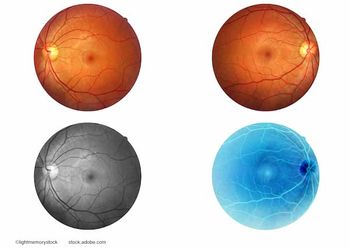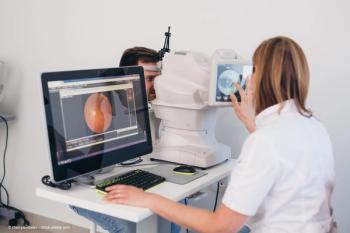
First patient dosed in STARLIGHT Phase 2 clinical trial of optogenetic gene therapy for Stargardt disease
According to the Nanoscope Therapeutics, 6-month safety and efficacy data are expected in Q1 2023. MCO-010 gene therapy reprograms healthy retinal cells to make them photosensitive.
Nanoscope Therapeutics Inc. today announced that the first patient has been dosed in a Phase 2 trial of its Multi-Characteristic Opsin (MCO-010) ambient-light activatable optogenetic monotherapy for Stargardt disease.
Sulagna Bhattacharya, CEO of Nanoscope, noted in a news release that the trial represents the second indication for the company’s vision-restoring therapy for people blinded by rare inherited retinal degenerative diseases regardless of gene mutations.
“Our RESTORE Phase 2b trial for retinitis pigmentosa patients has completed enrollment and results are expected in Q1 2023. There are no approved treatments for these debilitating conditions,” Bhattacharya said in the release.
According to the company, the Phase 2 STARLIGHT open-label trial (NCT05417126) currently has active clinical sites in Texas and Florida and will enroll approximately six patients to receive the same MCO-010 dose of 1.2E11gc/eye as used in the Phase 2b retinitis pigmentosa (RP) study. Six-month safety and efficacy data are expected in Q1 2023. Stargardt disease is a progressive, inherited condition affecting children and adults. The condition results in damage to the macula, the central part of the retina responsible for central and detailed vision. Stargardt disease can be caused by several different gene mutations and is the second most common inherited retinal condition after RP.
"Existing experimental treatments for Stargardt primarily aim to slow progression of vision loss. For people who already have advanced vision loss, an optogenetics based approach, such as MCO-010, may have much greater potential to restore lost vision," Aaron Osborne, CMO and CDO at Nanoscope added in the release.
Stephen Tsang, MD, PhD, Laszlo Z. Bito Professor of Ophthalmology, Pathology and Cell Biology at Columbia University Irving Medical Center and advisor to Nanoscope Therapeutics, pointed out that MCO-010 offers new hope for individuals with Stargardt macular degeneration.
“Stargardt patients with severe degeneration typically lack sufficient light sensing photoreceptor neurons needed to qualify for experimental ABCA4gene specific therapies,” Tsang said in the news release. “Optogenetic therapy may be able to treat a wider group of patients with Juvenile macular degeneration regardless of the status of their light sensing photoreceptor neurons.”
Nanoscope's MCO-010 gene therapy reprograms healthy retinal cells to make them photosensitive. It uses proprietary vector and promoter technology to deliver the MCO genes into retinal bipolar cells enabling vision in different color environments. The therapy involves a single intravitreal injection in a medical office setting.
Newsletter
Keep your retina practice on the forefront—subscribe for expert analysis and emerging trends in retinal disease management.














































